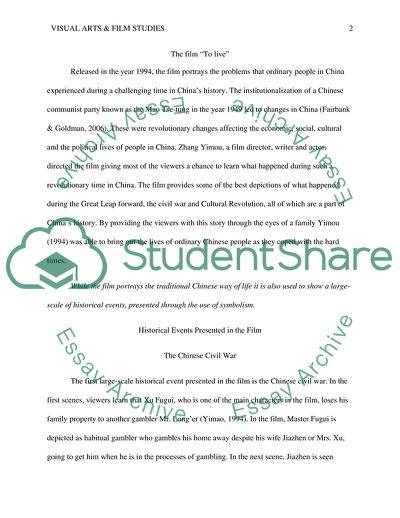Cite this document
(The Film to Live Movie Review Example | Topics and Well Written Essays - 1500 words, n.d.)
The Film to Live Movie Review Example | Topics and Well Written Essays - 1500 words. https://studentshare.org/visual-arts-film-studies/1846638-to-live
The Film to Live Movie Review Example | Topics and Well Written Essays - 1500 words. https://studentshare.org/visual-arts-film-studies/1846638-to-live
(The Film to Live Movie Review Example | Topics and Well Written Essays - 1500 Words)
The Film to Live Movie Review Example | Topics and Well Written Essays - 1500 Words. https://studentshare.org/visual-arts-film-studies/1846638-to-live.
The Film to Live Movie Review Example | Topics and Well Written Essays - 1500 Words. https://studentshare.org/visual-arts-film-studies/1846638-to-live.
“The Film to Live Movie Review Example | Topics and Well Written Essays - 1500 Words”. https://studentshare.org/visual-arts-film-studies/1846638-to-live.


